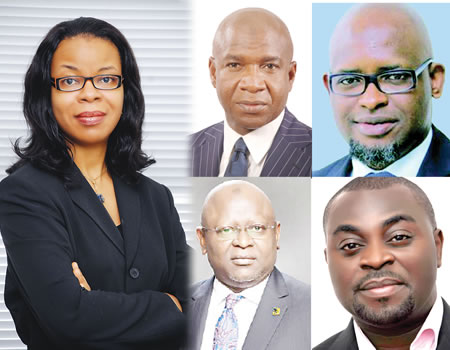Continued from last week
S – Service
The hallmark of leadership is service. Leadership that does not offer service is mere rhetoric, not more than mere gas. Leaders are agents of change; the change created by them is through the instrumentality of the service they offer. A great leader does not wait to be served, he serves others. He serves because, at heart, he is a servant. He knows that the core of his calling as a leader is to serve the people under his watch. He knows that as a leader he is duty-bound to help those over whom he superintends. Leaders serve others by helping them to get better. Leaders serve those they lead by putting them and their needs ahead of personal desires. By so doing, a leader makes his people better than they were before their meeting and helps them to accomplish their aspirations.
When a leader offers service that helps his people achieve their goals, he wins their hearts and their trust. He is elevated in the thinking of the people and they are willing to do anything for him. That is what happened to Nelson Mandela of South Africa. He served the people. He did for them what they could not do for themselves. He helped them to accomplish their goals of self rule. He did not betray their trust. As a result, the people loved, trusted and adored him. He was worshipped in life and even in death.
While Mandela was in prison, he suffered deprivation; he was cut off from his family and friends. So, he would have deeply appreciated his freedom. The apartheid government offered him freedom, provided he would abandon his agitation for the people’s freedom. But he spurned the offer because he knew what service meant. He traded personal liberty for collective freedom. At the end, he, alongside others, was able to get for the people what they wanted. Consequently, he was elevated to the status of a god by the people.
Leaders who serve the people in truth are not only served by the people in return, they are also celebrated by them.
T – Trust
Most leaders ascend the height of leadership on the ladder of trust reposed in them. For anyone to get into a leadership position, especially one that is not hereditary, he must have earned the trust of those who made the ascent a reality. However, the trust which got the leader into position is a mere deposit; making a success of the position and remaining relevant while holding the position require the growth of the deposit because trust is leadership collateral.
Trust is so critical to a leader that losing it marks the exit of the substance of leadership, what is left after that is mere shadow. A leader who is not trusted by the people can never get the result he wants. Leaders who inspire trust usually literally have the people eating out of their palms; they can motivate their people to accomplish anything. When a leader is trusted, no task is unachievable, no height is un-scalable. Management skills, vision, drive and positive attitude are all essential in a leader’s armoury, but without trust, they don’t amount to much and can achieve nothing of appreciable significance.
Leaders begin to run into trust crisis when they start disrespecting their people. This looks tangential but is quite critical. The truth is that a person only acts in consistence with his conviction. If a leader holds his followers in contempt, he consciously and unconsciously begins to devalue them; he shows little concern about what matters to them. On the other hand, if a leader respects his people, he will advertently and inadvertently act in ways to increase their worth; their wellbeing, challenges and concerns will be paramount to him. Neither a leader’s respect nor his disdain is lost on the followers and they reciprocate accordingly. So, to earn his people’s trust, a leader must consciously, unrepentantly and continuously respect those he leads.
How to build trust
Trust is earned; it is never given. Therefore, it has to be built. These are some steps necessary in building it.
Consistency
To be trusted, a leader must not be like a shifting shadow. Consistency comes from the leader’s commitment to the vision of the organization. Consistency is critical because many people cannot cope with sudden changes. If there is going to be a change they want to know in advance, so they are unable to trust an inconsistent leader. An inconsistent leader may arrive at his destination but may not have anybody following him.
Accountability
Although accountability is mutual, many leaders go about believing that only the subordinates should be accountable. But this is a fallacy. Trust is strengthened in an atmosphere that encourages accountability. Non-accountability allows suspicion to flourish. Trust flies where suspicion thrives.
Be a model
People submit themselves to others’ leadership because they believe the leaders have some qualities that they admire. For as long as the leaders exhibit the traits loved by the followers, they will enjoy their trust. However, when the leader drops the ball, he loses the trust of the follower and destroys his leadership.
U –Unleash to connect
Leaders unleash people; they liberate them from their limitations and connect them with their purpose and destiny. Most people will operate far below their capacity unless they come under the tutelage of leaders who unleash them from the limitations imposed on them by their beliefs, backgrounds or experience. Leaders help others to attain their full potentiality and achieve the utmost possible for them. Leaders unleash people, organizations and nations so as to connect them with their purpose and attain their potential.
Ben Carson and his mother
Ben Carson, the United States of America’s Secretary of Housing and Urban Development, appeared headed for the dark side of life until his mother, Sonya, an illiterate, decided to change the course of his life. Carson, whose parents got divorced when he was eight, was living with his mother who sometime left home for work as early as five in the morning only to return at about midnight, consistently had poor grades in school. Worried about the situation, the mother limited Carson and his brother’s access to the television, insisted on them not going out to play until school work was done and encouraged them to read two books weekly, write the summary of same and hand over to her. Neither Carson nor his brother knew that their mother could not read because she spent time rummaging through their reports.
As the sons made a habit of reading, it impacted positively on their school performance and from the rear of the class, Carson went to the top. He later studied medicine and gain global renown as an outstanding neurosurgeon. Carson, who once sought the presidential ticket of the Republican Party, would have dropped out of school if not for her mother who rerouted his path and unleashed his potential.
Argungu and NIPOST
The Nigerian Postal Service (NIPOST) had become the poster boy for corporate failure. The outfit was fast becoming moribund. It had earned a reputation for itself as a government department where nothing worked. In those days, letters took months to get delivered and parcels got missing regularly. Nigerians hated to have anything to do with NIPOST and those who could afford it resorted to patronizing courier companies despite the higher fees being charged. Everybody, including the government, was patiently waiting for the demise of the department. Then, Abubakar Musa Argungu was appointed the Postmaster General in 1999.
Shortly after he became the head of the agency, the organization was transformed. NIPOST started delivering mails within 72 hours. Initially, it was thought to be a fluke but it was sustained throughout the time he was in charge. To every nook and cranny of the country, mails and parcels were delivered within 72 hours. The transformation that took place in the organization did not escape the notice of the Federal Government as the late PMG was conferred with the national honour of the Officer of the Order of Niger (OON). He was also re-appointed the PMG in 2005, making him the first head of the organization to be so appointed since its establishment in 1985, following the split of the defunct Post and Telecommunication Department. Unfortunately, Argungu could not complete his second term as he lost his life in the Bellview Air disaster that occurred in October 2005.
What Argungu did was to halt the fall of NIPOST, redirected it, unleashed its potentialities and connected it to its purpose. With that the organization bounced back. If the Nigeria Airways and other moribund government-owned businesses had had the fortune of leaders like Argungu, they would have survived.
Paul Kagame’s Rwanda
Between April 7 and July 15, 1994, Rwanda was embroiled in genocide that claimed about one million lives. The Hutus made mincemeat of the Tutsi, killing as many of them as they came across. After the genocide was quelled, Rwandans could still not live together as one people. Suspicion pervaded the space and the human development indices went down. But after the resignation of the former President, Pasteur Bizimungu, in 2000, Paul Kagame became the President. Since then, the story of the former war-torn country has changed. Kagame has successfully steered the people of the country from seeing themselves as enemies to believing that they are one. With that, the country has been growing by leap and bounds.
Rwanda, which was a pariah state two decades ago, has become a reference point for development in Africa. It is considered the second safest country in Africa after Algeria. It is rated as one of the least corrupt countries in the world, one of the fastest growing economies in the world, and it has also become the choice of planners of international events, all because a leader has been able to change the direction of the country, unleash its potential and connect with its purpose.
When leader provides the right leadership, they unleash the potential of the people, the organizations or the nations they lead.
V – Value-creation
The essence of leadership is value creation. A leadership that fails to create value has failed indeed. The reason is not shrouded in any mystery; leadership is nor for the leader but the led.
Leaders are honoured, celebrated and rewarded because of the value they create or add to their nations or organizations and the people. Leaders are not only change agents, they are also game changers. They act as game changers by the value they create. Through their insight and foresight, they bring the much needed change. Therefore, the worth of a leader is a coefficient of the value he delivers to those he leads. His relevance is tied to the value he creates. If he continues to deliver value, his relevance will be on the increase because value is magnetic; it draws people, power and affluence to whoever possesses it. But when a leader fails to deliver value, his worth plummets and his relevance nosedives. Therefore, creating value is critical to the continuous relevance of a leader.
Last line
You have to act as if it were possible to radically transform the world. And you have to do it all the time. — Angela Davis
WATCH TOP VIDEOS FROM NIGERIAN TRIBUNE TV
- Let’s Talk About SELF-AWARENESS
- Is Your Confidence Mistaken for Pride? Let’s talk about it
- Is Etiquette About Perfection…Or Just Not Being Rude?
- Top Psychologist Reveal 3 Signs You’re Struggling With Imposter Syndrome
- Do You Pick Up Work-Related Calls at Midnight or Never? Let’s Talk About Boundaries







